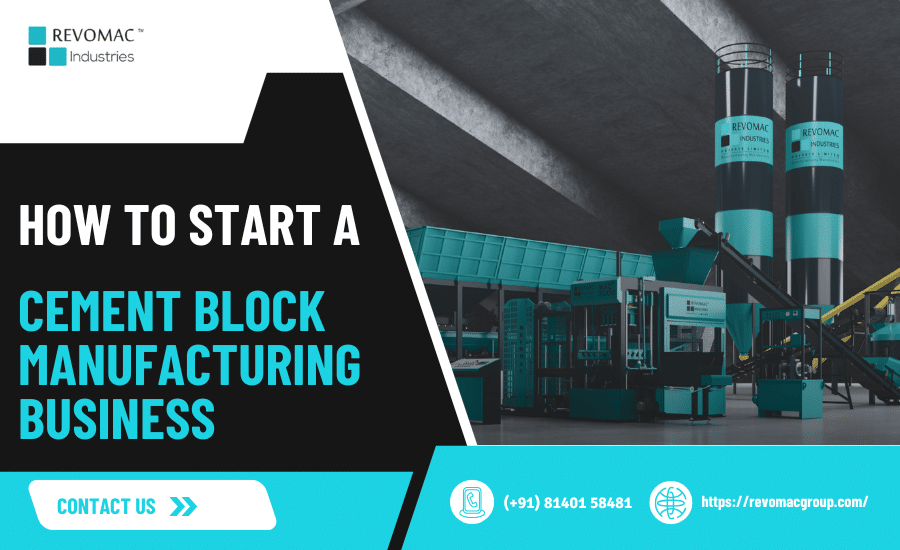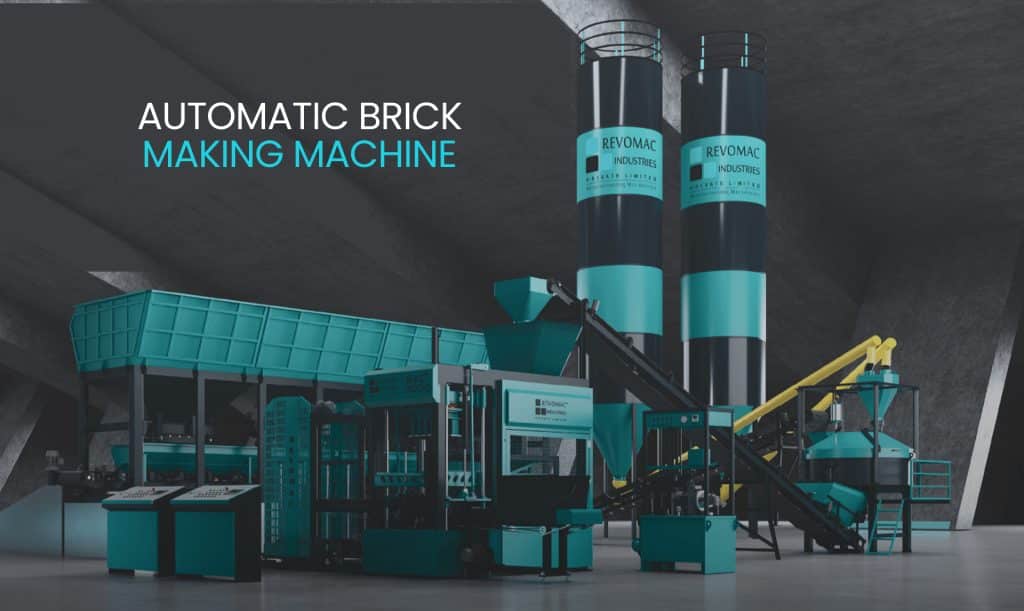 Skip to content
Skip to content

Cement block manufacturing has become one of the most profitable small-scale businesses in India’s growing construction sector. With rapid urbanisation, government housing schemes like Pradhan Mantri Awas Yojana, and infrastructure projects happening across Tier-1, Tier-2, and even Tier-3 cities, the demand for cement blocks is at an all-time high.
Starting a cement block business in India is a smart investment. It requires a well-planned setup, an understanding of local demand, and good cost control to ensure profits. In this blog, we will explain the process of starting your own cement block manufacturing unit, including setup costs, profit margins, and how quickly you can recover your investment.
Cement or concrete blocks are used in almost every type of construction project — from housing societies to commercial buildings. Here are the main types:
The Indian construction market is shifting towards eco-friendly, faster-to-build solutions, making cement blocks a preferred choice over traditional red bricks.
Before investing, study the local demand. For example, in cities like Pune, Ahmedabad, or Coimbatore, real estate development is high, which means higher demand for cement blocks. Prepare a business plan that covers:
A clear plan will also help if you apply for MSME registration, government subsidies, or bank loans.
Select land on the outskirts of cities or near construction clusters to reduce logistics cost. You will need 500–1500 sq. ft. of open space for raw material storage, production, curing, and finished goods. Easy road access is important for loading and unloading.
India offers a wide range of cement block machines:
Choose based on your budget and production requirements. Semi-automatic machines are most common among Indian entrepreneurs starting out.
A small unit typically needs 5–10 workers to operate machines, mix raw materials, handle curing, and manage dispatch. Provide basic safety gear and training to avoid accidents.
Here’s an approximate cost structure for a small to medium unit:
Government schemes such as Mudra Loans or MSME support can help reduce the financial burden for first-time entrepreneurs.
The profit margins in India are attractive if you manage costs and find steady buyers:
Typically, entrepreneurs recover their investment in 12–18 months, making it a fast-return business.
To succeed in India, focus on building local networks and repeat customers:
Running a cement block business in India comes with some challenges:

Revomac’s Automatic Cement Brick Making Machine is designed for high-speed, precision brick production with minimal labour. Built with robust technology, it delivers consistent quality, reduces material wastage, and increases productivity. Ideal for large-scale construction projects, this machine ensures energy efficiency, easy operation, and long-term durability — making it a perfect choice for businesses seeking reliable and cost-effective brick manufacturing solutions.